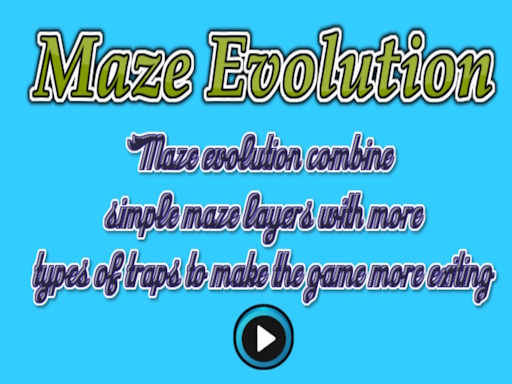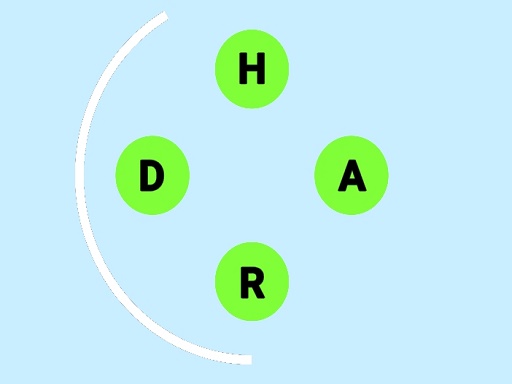Weighty Equations
About Weighty Equations
Oh man, you've gotta hear about this game I stumbled upon. Seriously, it's called *Weighty Equations*, and it's just… it’s just brilliant. I know, I know, the name sounds a bit like something you’d dread in school, right? But trust me, it’s anything but. I mean, I’ve always been drawn to games that make you *think*, the ones that grab onto your brain and just won't let go until you've cracked whatever intricate puzzle they've thrown at you. And this one? It’s exactly that, but with this incredible, almost meditative flow that just sucks you in. I'm talking about those late-night sessions where you look up and realize the sun is starting to peek through the blinds, and you have absolutely no idea where the last five hours went. That kind of absorbed.
The first time I launched it, I was actually just looking for something chill, something to unwind with after a particularly hectic day. The interface is super clean, really minimalist, which I always appreciate. No flashy intros, no complicated tutorials. It just drops you right into it. You see these boxes, right? At the very beginning, it’s just two of them, sitting there on the screen. Each box, you quickly notice, has four distinct number blocks inside, and then, a little bit larger, right in the middle of the box, is the sum of those four numbers. Simple enough, I thought. My initial thought was, "Okay, what's the catch?" Because there's always a catch, isn't there?
Then the goal pops up: make the sum of *all* boxes equal. And that's where the gears started turning. You can swap any number block from one box to another. Any block, any box. It sounds so deceptively simple, like a child's toy, but the moment you start moving those numbers around, you feel this immediate, tangible shift. It’s not just about getting the numbers to match; it’s about understanding their *weight*, their impact on the overall balance. You might have a box with a really high sum, say, 40, and another with a low sum, like 20. And you’re looking at these four blocks in each, trying to figure out which one to pluck out of the high box and drop into the low one, and then what to take from the low box to put into the high one, all while keeping the numbers within each box adding up to something meaningful. It's this constant, delicate dance of give and take.
What I love about games like this is how quickly your brain adapts. Those first few levels, with just two boxes, they’re almost like a gentle handshake, a warm-up. You get a feel for the mechanics, the satisfying *thunk* sound effect when you drag a block from one container to another, the immediate recalculation of the sums. You start to see patterns, to intuitively grasp which numbers are "heavy" and which are "light" in the grand scheme of things. It’s like learning a new language, where at first you’re translating every word, but then suddenly, you're just *thinking* in it.
The real magic, though, happens when the game starts to scale up. You move from two boxes to three, then four, and before you know it, you're staring at a screen with eight distinct boxes, each brimming with its own set of four numbers, each with its own wildly different sum. And your goal is still the same: make them all equal. But now, the complexity explodes. You’re not just balancing two scales; you’re orchestrating an entire symphony of numbers. You might have a box with a sum of 60, another at 35, one at 48, another at 52, and so on. Your brain has to become this incredible, dynamic calculator, constantly running permutations.
You'll find yourself scanning the entire board, almost like a chess player looking several moves ahead. "Okay, if I take this '12' from the 60-sum box and put it into the 35-sum box, that box's sum goes up by 12. But then I need to take something out of the 35-sum box to put into the 60-sum box to balance *that* out, and what if that number messes up another box I haven't even considered yet?" It’s this incredible cascade of consequences, and honestly, that’s where the addiction truly sets in. There's something profoundly satisfying about holding all those variables in your head, making a series of calculated swaps, and then watching as, one by one, the numbers align. That moment when the final box's sum snaps into place, and they're all perfectly equal, it’s just… pure dopamine. It’s that visceral *click* of understanding, that feeling of a complex machine suddenly humming in perfect harmony.
The brilliant thing about this is that it's an endless game. It just keeps going. The difficulty ramps up organically, subtly. It's not like suddenly you're hit with impossible numbers; it's more like the range of numbers gets wider, the initial sums become more disparate, making the puzzle just a little bit trickier to untangle. And your score, that little number ticking up in the corner, becomes this silent testament to your growing mastery. You start chasing those higher scores, not just for the number itself, but for the sheer challenge of it, for the mental workout. You start developing strategies. Sometimes you'll identify the "outlier" boxes – the ones with extremely high or extremely low sums – and focus on bringing them closer to the average first. Other times, you'll try to find a common denominator, a target sum that feels achievable for all boxes.
In my experience, the best moments come when you're stuck. You’ve made a few swaps, and you’re looking at the board, and nothing seems to fit. You might even feel a little bit of frustration bubbling up, that familiar puzzle-game wall. But then, you take a deep breath, clear your mind, and just *look* again. Maybe you realize you’ve been too focused on one particular box, or maybe you spot a single number block that’s disproportionately affecting everything. You make that one crucial swap, and suddenly, the whole puzzle unravels before you, like a perfectly choreographed dance. It’s that breakthrough, that moment of pure clarity, that makes all the previous head-scratching worth it. You can almost feel the tension in your shoulders ease, replaced by this wave of accomplishment.
What's fascinating is how much it feels like a genuine journey. You start as a novice, fumbling with two boxes, and you slowly, steadily, become a master of numerical balance. You're not just solving puzzles; you're honing a skill. You're training your brain to see patterns, to think critically, to plan ahead. And it's all wrapped up in this really clean, satisfying package. There’s no pressure, no timers rushing you. It’s just you, the numbers, and the quiet satisfaction of bringing order to chaos.
Honestly, if you're someone who appreciates the elegance of a well-designed puzzle, if you love that feeling of a challenge slowly giving way to understanding, you absolutely have to try *Weighty Equations*. It’s not about flashy graphics or an epic storyline; it’s about the sheer, unadulterated joy of problem-solving. It's the kind of game that reminds you why you fell in love with gaming in the first place – that pure, unadulterated spark of curiosity, the drive to overcome, and the incredible satisfaction of a perfectly executed solution. Just wait until you encounter your first eight-box level and you manage to equalize all of them in a handful of moves. That feeling? That’s the real gold. It's a game that respects your intelligence, rewards your patience, and truly grows with you. You'll find yourself thinking about it even when you're not playing, wondering about optimal strategies, itching to get back to those weighty equations. It's genuinely special.
The first time I launched it, I was actually just looking for something chill, something to unwind with after a particularly hectic day. The interface is super clean, really minimalist, which I always appreciate. No flashy intros, no complicated tutorials. It just drops you right into it. You see these boxes, right? At the very beginning, it’s just two of them, sitting there on the screen. Each box, you quickly notice, has four distinct number blocks inside, and then, a little bit larger, right in the middle of the box, is the sum of those four numbers. Simple enough, I thought. My initial thought was, "Okay, what's the catch?" Because there's always a catch, isn't there?
Then the goal pops up: make the sum of *all* boxes equal. And that's where the gears started turning. You can swap any number block from one box to another. Any block, any box. It sounds so deceptively simple, like a child's toy, but the moment you start moving those numbers around, you feel this immediate, tangible shift. It’s not just about getting the numbers to match; it’s about understanding their *weight*, their impact on the overall balance. You might have a box with a really high sum, say, 40, and another with a low sum, like 20. And you’re looking at these four blocks in each, trying to figure out which one to pluck out of the high box and drop into the low one, and then what to take from the low box to put into the high one, all while keeping the numbers within each box adding up to something meaningful. It's this constant, delicate dance of give and take.
What I love about games like this is how quickly your brain adapts. Those first few levels, with just two boxes, they’re almost like a gentle handshake, a warm-up. You get a feel for the mechanics, the satisfying *thunk* sound effect when you drag a block from one container to another, the immediate recalculation of the sums. You start to see patterns, to intuitively grasp which numbers are "heavy" and which are "light" in the grand scheme of things. It’s like learning a new language, where at first you’re translating every word, but then suddenly, you're just *thinking* in it.
The real magic, though, happens when the game starts to scale up. You move from two boxes to three, then four, and before you know it, you're staring at a screen with eight distinct boxes, each brimming with its own set of four numbers, each with its own wildly different sum. And your goal is still the same: make them all equal. But now, the complexity explodes. You’re not just balancing two scales; you’re orchestrating an entire symphony of numbers. You might have a box with a sum of 60, another at 35, one at 48, another at 52, and so on. Your brain has to become this incredible, dynamic calculator, constantly running permutations.
You'll find yourself scanning the entire board, almost like a chess player looking several moves ahead. "Okay, if I take this '12' from the 60-sum box and put it into the 35-sum box, that box's sum goes up by 12. But then I need to take something out of the 35-sum box to put into the 60-sum box to balance *that* out, and what if that number messes up another box I haven't even considered yet?" It’s this incredible cascade of consequences, and honestly, that’s where the addiction truly sets in. There's something profoundly satisfying about holding all those variables in your head, making a series of calculated swaps, and then watching as, one by one, the numbers align. That moment when the final box's sum snaps into place, and they're all perfectly equal, it’s just… pure dopamine. It’s that visceral *click* of understanding, that feeling of a complex machine suddenly humming in perfect harmony.
The brilliant thing about this is that it's an endless game. It just keeps going. The difficulty ramps up organically, subtly. It's not like suddenly you're hit with impossible numbers; it's more like the range of numbers gets wider, the initial sums become more disparate, making the puzzle just a little bit trickier to untangle. And your score, that little number ticking up in the corner, becomes this silent testament to your growing mastery. You start chasing those higher scores, not just for the number itself, but for the sheer challenge of it, for the mental workout. You start developing strategies. Sometimes you'll identify the "outlier" boxes – the ones with extremely high or extremely low sums – and focus on bringing them closer to the average first. Other times, you'll try to find a common denominator, a target sum that feels achievable for all boxes.
In my experience, the best moments come when you're stuck. You’ve made a few swaps, and you’re looking at the board, and nothing seems to fit. You might even feel a little bit of frustration bubbling up, that familiar puzzle-game wall. But then, you take a deep breath, clear your mind, and just *look* again. Maybe you realize you’ve been too focused on one particular box, or maybe you spot a single number block that’s disproportionately affecting everything. You make that one crucial swap, and suddenly, the whole puzzle unravels before you, like a perfectly choreographed dance. It’s that breakthrough, that moment of pure clarity, that makes all the previous head-scratching worth it. You can almost feel the tension in your shoulders ease, replaced by this wave of accomplishment.
What's fascinating is how much it feels like a genuine journey. You start as a novice, fumbling with two boxes, and you slowly, steadily, become a master of numerical balance. You're not just solving puzzles; you're honing a skill. You're training your brain to see patterns, to think critically, to plan ahead. And it's all wrapped up in this really clean, satisfying package. There’s no pressure, no timers rushing you. It’s just you, the numbers, and the quiet satisfaction of bringing order to chaos.
Honestly, if you're someone who appreciates the elegance of a well-designed puzzle, if you love that feeling of a challenge slowly giving way to understanding, you absolutely have to try *Weighty Equations*. It’s not about flashy graphics or an epic storyline; it’s about the sheer, unadulterated joy of problem-solving. It's the kind of game that reminds you why you fell in love with gaming in the first place – that pure, unadulterated spark of curiosity, the drive to overcome, and the incredible satisfaction of a perfectly executed solution. Just wait until you encounter your first eight-box level and you manage to equalize all of them in a handful of moves. That feeling? That’s the real gold. It's a game that respects your intelligence, rewards your patience, and truly grows with you. You'll find yourself thinking about it even when you're not playing, wondering about optimal strategies, itching to get back to those weighty equations. It's genuinely special.
Enjoy playing Weighty Equations online for free on Colosm. This Puzzle game offers amazing gameplay and stunning graphics. No downloads required, play directly in your browser!
How to Play
Use a mouse or touchpad to play this game





Comments
This game is awesome! I love the graphics and gameplay.
One of the best games I've played recently. Highly recommended!